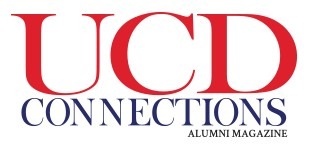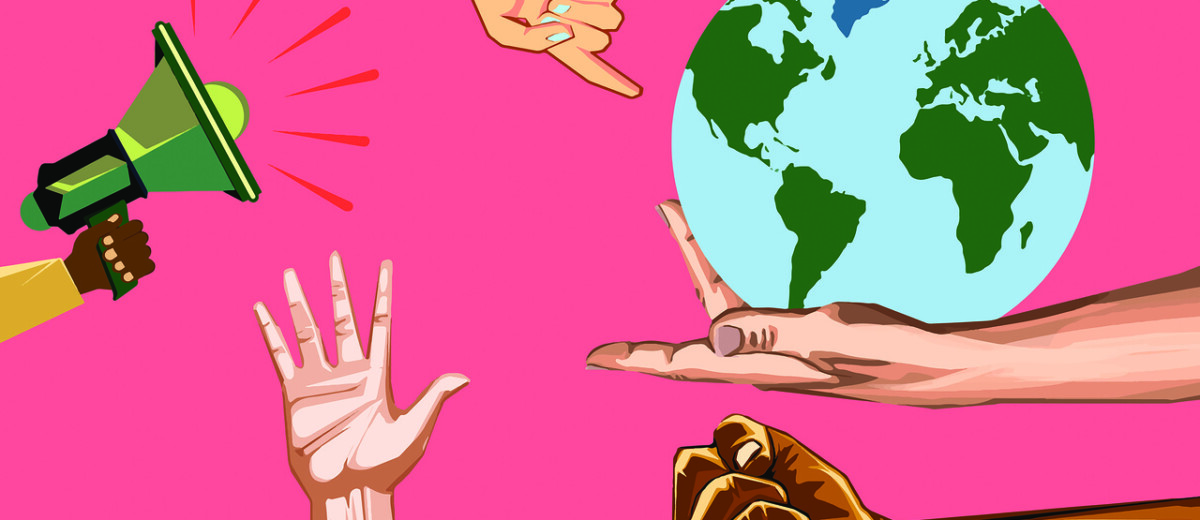MOTIVATING BEHAVIOURAL CHANGE
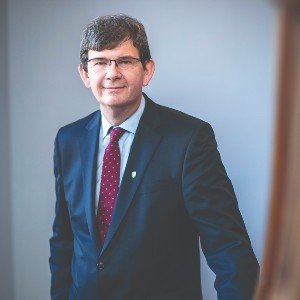
Our value system places a great emphasis on equality, diversity and inclusion. We believe the laws that govern our society should be based on concepts of justice. And in a digital world, where disinformation can cause havoc, we stand up for the protection of human and civil rights. Each of these principles supports our goal to empower humanity.
The key to empowering humanity is to understand what shapes human thinking and what motivates behaviour and behavioural change. As a progressive, research-intensive university, UCD plays a role in this empowerment by building a holistic understanding of the behaviour and interaction of individuals in societies and across cultures.
Central to empowering humanity is trust and trustworthiness. The rise in populism and the manipulation of media have affected public perceptions of trustworthiness in governments and democracy.
The war in Ukraine, coming before we really break free of the impact of COVID-19, places extreme pressure on society. The economic cost of supporting people during lockdown, quickly followed by surging inflation, especially in energy costs, paints a worrying scenario for the future. There is no doubt that we are currently faced with a profound crisis of social trust.
The PERITIA project (Policy, Expertise and Trust in Action), funded through the European Union’s Horizon 2020 programme and led by UCD across Europe, seeks to help people and policy-makers identify trustworthy expertise.
In a major study undertaken across six European countries earlier this year, PERITIA found that distrust of government is widespread. None of the countries in the study does particularly well, with large proportions of the public in each saying they are cautious about trusting their government, disagreeing that they are honest, truthful and provide unbiased information. A point of difference in Ireland is the public’s favourable view of the European Commission, the most favourable of the six countries surveyed.
However, in the midst of the current political, economic, social and public health crises, the PERITIA study finds that there is strong public trust in science and in university scientists (94 per cent) across all six nations. This is reassuring but should not be taken for granted. The research we undertake across social sciences as well as health and data sciences, creates experts. Our role and responsibility is to use this expertise with integrity and independence in order to empower humanity.
ACCESS AND INCLUSION
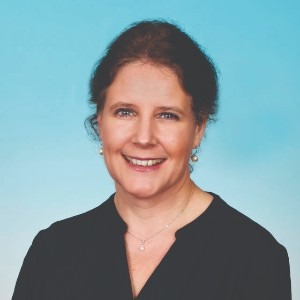
More than one billion people worldwide identify as having a disability. Over three-quarters of disabled people have acquired their disability during the course of their life, and as we age, most of us will experience some form of disability – whether visible or hidden. But the disability derives not from a particular impairment, but from barriers in society that make participation and inclusion challenging and difficult. As Ireland’s global university, UCD is well placed to tackle these barriers, both by ensuring access to higher education and research for people with disabilities, but also by identifying solutions that can be applied across all sectors.
Universal Design is the design of the built environment, products and services, information and communications technology so that they can be accessed, understood and used by everyone, regardless of age, size, ability or disability. It is vital that our universities embed Universal Design in their campuses, their curricula and in their research outputs. Not only will this facilitate access for anyone with a disability, but it will generate a pipeline of graduates and researchers who will understand universal access as a fundamental right, and work to achieve it in whatever they do.
It is tempting to think of disability as something ‘marginal’, and potential solutions as being relevant only to one group within the population. But if we accept that everyone is only ‘temporarily able’ we see the importance of designing our society so that we can all participate and contribute at every stage of our lives. And if we ensure that the doors of our higher education institutions are open to all, we tap into a talent base with expertise in creativity, problem-solving and innovation. ‘Cothrom na féinne’ as a motto enshrines equal access for all, so that we can continue to grow a society in which this becomes standard rather than the exception.
LANGUAGE MATTERS
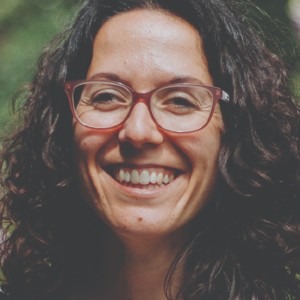
In Ireland, multilingualism is rapidly growing through more immigration and a renewed interest in the Irish language. Ask around and you will hear that being bilingual is an asset, good for your brain, and a superpower! Yet, one in four parents in Ireland struggle with confidence in how best to raise bilingual children and have concerns over discrimination (Mother Tongues survey results 2022). Passing your language to your child is not a given. It requires a decision, commitment, dedication and more than anything, support from others (medical professionals, early years practitioners, teachers, relatives) in the shape of a positive attitude towards bilingualism regardless of the language and cultural background.
Statistics show that worldwide, there are more people who are bilingual or multilingual than people who speak only one language. Still, many people think that being monolingual is the norm and this fact is in itself proof of the so-called “monolingual mindset”, which affects our societal norms, how we view others, our professional training and our policies.
Here at Mother Tongues, we often meet teenagers who tell us that they can’t speak the language of their parents or grandparents and that they missed out on the family bonds the language would have allowed them to develop as well as all the other advantages to being bilingual. We also meet parents who confess feeling angry with themselves because, in order to shield their children from discrimination, they decided to speak English to them instead of their mother tongue and are now at a loss to connect with them in the language of their heart and their ancestors.
Cognisant of the many challenges and opportunities multilingualism poses, our advocacy at Mother Tongues involves communicating the value of multilingualism and instilling confidence in parents who want to transmit their language to their children, as well as in practitioners who wish to create a welcoming environment for bilingual and multilingual children.
Language can both unite or divide us. To build a more constructive society, let’s choose curiosity and openness towards diversity over a fear of difference, and let’s use this as a catalyst for how we think about and relate to our Irish heritage.
DIGITAL TECHNOLOGY
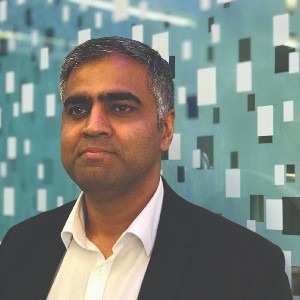
Artificial Intelligence Centre of Excellence, Citigroup
Digital technology-driven innovation is powering fundamental changes in every aspect of our lives today. Rarely does a week go by without attention-grabbing news highlighting astonishing advancements in the digital world. Artificial Intelligence (AI) is promising to entertain and assist us, eventually surpass us. Distributed Ledger Technologies (DLTs) are providing the basis for new types of cryptocurrencies. Quantum computing is showing us glimpses of how we can supercharge some of our digital activities today with unimaginable computation. And then, there is the metaverse, a completely digital world waiting to be built and explored. The possibilities seem endless.
Today’s mega-trends are likely to have an outsized impact on the future of humanity. Let’s start with work. Not only can some of us now seamlessly and collaboratively work from home, but what we will actually be working on, if at all, in the future is also up for debate! The promise of eliminating not just repetitive/mundane tasks, but activities that may require creativity and critical thinking are now in the realms of possibility. This is an astonishing discussion.
Money makes the world go round. But will future generations physically carry cash around or will it be purely digital? Will digital technology enable the millions of unbanked individuals to reap the benefits of society and globalisation that the rest of us take for granted?
Additionally, technology is making the world smarter and smaller, enabling conversations across boundaries and cultures. From Smart Homes to Smart Cities (and even Smarter People!), technology is helping us solve some of the most pressing problems facing humanity. Can we solve global warming? I believe human ingenuity combined with technology-driven solutions has already started to provide some of the most innovative answers.
Before we get carried away, a small word of caution. I am not opposed to optimism, but I am fearful of the kind that comes from self-delusion. We cannot outsource our hopes and dreams, or our current predicaments, to technology. We have to work together to better ourselves and repair our environment. Technology is only an aid (for now)!
ADDRESSING THE CLIMATE CRISIS

As the first civilisation that understands its planetary dilemma, those working in scientific research and innovation face a new responsibility to give courage to our society to embark on sustainable pathways by the end of this decade. We are living through a decade of decisions. We know that we face tipping points in the delicate web of climate, ecosystems collapse, energy transition and economic change. Research must empower people and decision-makers to choose a better destination for the next version of humanity.
Across key life support systems, there is a mobilisation across Europe through Horizon Europe’s ambitious programme and globally in Europe’s cooperation on climate with the IPCC, COP. The mission of the European Union to deliver a climate neutral continent by 2050 has been set out in the European Green Deal, which is refitting all policies, instruments and investments to deliver a transformation of our planetary, economic and social future.
There is encouraging progress taking shape quickly. The four Green Deal missions are using research to drive the development of 100 climate neutral cities, the empowerment of climate adaptation resilience in every region, the regeneration of the continent’s soil and the restoration of our ocean and water systems, by 2030. We have just signed an declaration that creates an All Atlantic Ocean Research and Innovation Alliance from coast to coast and pole to pole to work together to understand, harness and restore our common ocean home.
The dilemma of the decade is how to reconcile our biosphere with our economy. Europe’s leading Bioeconomy Strategy will be renewed this year to empower countries, regions, rural and coastal communities to harness joined-up policy and investment to develop an economy that is sustainable, inclusive and innovative. In all of this, the debate in Ireland, a leading actor in research and innovation and where the opportunities of the bioeconomy, the pressures of climate change and the needs of social and economic fairness remain at the centre, continues. In decision, there is always choice. The great transition offers us an opportunity to design a better place. What kind of a future destination do we envisage for this green island? Can we reimagine our cities, our countryside, our industry, our ocean wealth, our food system, our energy choices, our services and our society? Research and innovation needs to step up to empower and enable this transition. We may be running out of time, but we are not running out of solutions.
CREATING EQUAL SOCIETIES
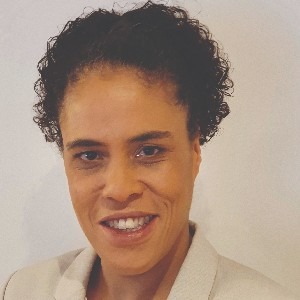
Equality. Diversity. Inclusion. Three words that represent hugely important ideas, not just for the workplace, but for Irish society at large. Research has shown that valuing and respecting diversity of thought, skills, and life experience can empower people to innovate, increase productivity and challenge groupthink in the workplace.
I recently returned home after 20 years in London to take up the role of Head of Equality, Diversity, and Inclusion at publicjobs.ie – Ireland’s centralised provider of recruitment services across the civil and public service. Ireland has changed considerably over that time – mostly for the better. For generations a country of origin, Ireland is now a country of destination for people looking for a better life. We are a global, progressive country where one in eight of us was born elsewhere but now calls Ireland home. Irish families now come in all shapes, colours and sizes. More women are now in the workforce than ever before, as are more people with disabilities, and huge progress has been made around LGBTQI+ rights.
The Irish civil service supports the government to shape effective, accountable, and trusted policies and services for everyone. My role is to help the civil service harness this growing Irish diversity, so that it is representative of the society that it serves. To do this, we look to identify who is working in the civil and public service (and who is not) and ways to attract and encourage people from under-represented sections of society to join the service. This includes developing more inclusive entry routes for those from disadvantaged backgrounds and ensuring our recruitment processes are equitable and accessible to all candidates. With a gender pay gap of 14 per cent, an 80 per cent unemployment rate in the Irish Traveller community and just 36 per cent of working-age disabled people in employment – we still have a way to go to ensure that we truly benefit from all that our diverse population has to offer.
Publicjobs.ie will continue to take a leading role in supporting an equitable, diverse, and inclusive workplace; however, it will take a whole-society effort to truly make Ireland a better country tomorrow, than it is today.
CHILDRENS’ MENTAL HEALTH
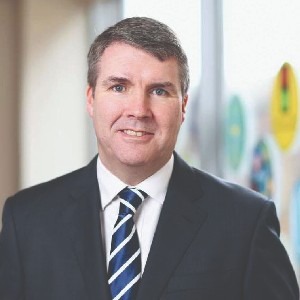
The COVID-19 pandemic has shone a spotlight on the absolute necessity of high-quality mental health and healthcare services like never before. When the pandemic threatened to break even the most basic healthcare services around the world, the true value of a properly functioning healthcare system was clear for all to see. The UN Convention on the Rights of the Child states that signatory countries recognise ‘the right of the child to the enjoyment of the highest attainable standard of health and to facilities for the treatment of illness and rehabilitation of health’. As signatories to the UNCRC, can Ireland say that every child here enjoys the highest attainable standard of health?
As Ombudsman for Children, I have many concerns in this regard, including issues my office was raising publicly long before the onset of the pandemic. Take for example the scourge of children waiting an unacceptably long time for an Assessment of Need and for procedures to treat scoliosis, or children who need access to timely and high-quality mental healthcare services. When it comes to the latter, the closure of in-patient beds in children’s mental health facilities and the abject failure in the recent Kerry CAMHS scandal have highlighted the gaping holes in the system. In light of this, my office is delighted to have been asked to advise on the review of CAMHS services across the country being undertaken by the Mental Health Commission in 2022 that will hopefully lead to much-needed improvements for these vital services for children. We cannot let the lessons learned over the past two years go to waste.
One significant move forward that would positively impact children’s mental health is the provision of therapeutic supports in all schools. Protecting and ensuring that the healthcare rights of our children are fully realised should not just be a job for my office today and in the years to come, but a responsibility for society as a whole. When it comes to catering for our children’s healthcare needs, we simply must do better. Their, and our future depends on it.
SANCTUARY FROM CONFLICT
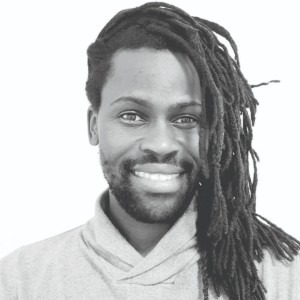
When the war in Syria began in March 2011, millions of Syrians fled and are now scattered around the world. Similarly when Iraq was invaded in 2003, millions of Iraqi people were forced to seek safety elsewhere. UNHCR data shows that there are over 100 million displaced people globally – the highest number on record – with four in every five people hosted in the developing world. The European Union response to displacement seems to be very inconsistent. At the peak of migration flows, the EU was very divided in responding to what is often described as an ‘influx’. Germany today hosts more than a million refugees while other EU countries reluctantly agreed to resettle a few thousand. The EU paid billions to Turkey in the form of ‘humanitarian aid’ to prevent refugees from reaching the EU frontier states.
‘Migration/migrant crisis’ dominated news coverage and policy discourse across the EU, but the EU had to halt reform proposals as there was no consensus on how it should respond to the migration flows. It was odd then to see the speed of the EU’s decision-making helping refugees fleeing the war in Ukraine. As Russian bombs started raining on Ukranian citizens, the following day Irish authorities removed visa restrictions for Ukranian passport holders entering Ireland. Seven days later, EU ministers with responsibility for immigration unanimously agreed to activate the Temporary Protection Directive – the first time this has been used to respond to refugees – allowing Ukrainian nationals to bypass the regular asylum procedure and enjoy access to public services as citizens in many cases. Before the Russian invasion, the EU was actively preventing displaced people from reaching its frontiers, while those who managed to reach the EU would be stuck in camps, with those who reached Ireland ending up spending years in the Direct Provision system which has been condemned by domestic and international human rights bodies, including the UN.
The activation of the Directive carried with it the recognition that people fleeing a war deserve to be treated with dignity. Such compassion in response to conflict should not be reserved for particular nationals. All human beings fleeing conflict have the same need for dignity, liberty, shelter, food, and safety. Thus, if there is any lesson to be learned, it should be that EU member states are well capable of hosting refugees and treating them with dignity.
